Techno Elders
This group of African-Caribbean senior citizens explored Equiano’s life with artist and storyteller Katrice Horsley. Their giant charm bracelet symbolizes aspects of Equiano’s life and their own. The group also recorded oral histories relating their own journeys to Equiano’s.
The Techno Elders’ work will form part of the Gas Hall exhibition.
Gloria Taylor
 Biographical detail – I was born in Jamaica in the parish of Manchester. I came to England in1961, married in 1963. I have 3, children.. I had different jobs until I went to Cadbury where chocolate ms made. I worked therefor twenty six years.
Biographical detail – I was born in Jamaica in the parish of Manchester. I came to England in1961, married in 1963. I have 3, children.. I had different jobs until I went to Cadbury where chocolate ms made. I worked therefor twenty six years.
My involvement in The Equiano Project – The Project has done a lot for me. It helped me to understand what Equiano has been through so that I can be where I am today. I am glad thatI was able to go to the museum and the library and also read about his journey and what he had to do to save money to buy his freedom so I can be free also they came to the home. They would play some kind of games or tell Anansi stories.
Extract from my audio – At school I did not think much about slaves,, only that my grandparents were taken away from Africa and then taken to the West Indies. I was young so I did not make a big thing out of it. I often wondered why the white children did not go to school with us. When I left Jamaica in 1961…. it was sunny and hot. I was full of excitement. My mum and dad waved me goodbye. It was not my intention that I would spend the rest of my life in England.The first six months I did miss my family and friends. I did cry.
Floribell Banbury
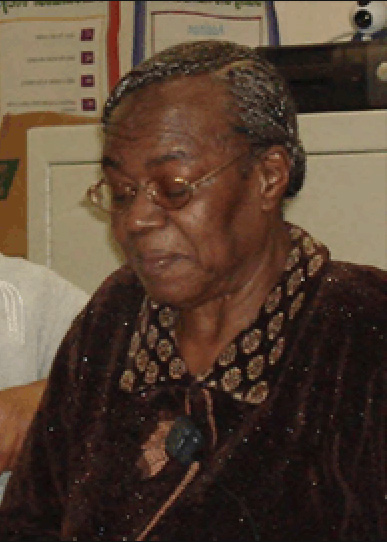 Biographical detail – My name is Flo. I was always called Florence and my surname was York. I was born in the parish of Senton, Jamaica.
Biographical detail – My name is Flo. I was always called Florence and my surname was York. I was born in the parish of Senton, Jamaica.
Extract from my audio – When I was, a little child I always had to help my mother doing things around the home. Sweep the yard, wash up the dishes, while my brothers would help my father in the field looking after the animals; maybe milk the cows or bring back the milk for us for breakfast before we go to school. If my dad hadn’t got a milking cow we sometime had to get milk from some relatives, or friends, and as we lived in the country our neighbours always a little distance from each other …. In spite of all these I still ,enjoy my childhood days. Haven’t got telly to watch like these children today but I can remember sometimes you would have some of the older relatives come to the home. They would play some kind of games or tell Anansi stories.
Lydia Shirley
 Biographical detail – My name is Lydia Shirley, I was born in Jamaica in the parish of St Thomas in 1931. I came to Birmingham in 1961. I lived in Handsworth for a number of years . I worked at the I>M>I factory in Wilton, Aston for a number of years.
Biographical detail – My name is Lydia Shirley, I was born in Jamaica in the parish of St Thomas in 1931. I came to Birmingham in 1961. I lived in Handsworth for a number of years . I worked at the I>M>I factory in Wilton, Aston for a number of years.
My involvement in The Equiano Project – By taking part in the Equiano Project it opened my eyes to what slavery was about. Equiano was a very amitious young man. He taught himself how to read and write was able to buy his freedom, and that opened the door that others coukd be free
Extract from my audio – My story is really about dreaming of going to England one day. This started when I was in school and we were taught that although we were Jamaicans uor mother country was England. Then we hear that the mother country is inviting people to go to England for there was plenty of work. There was lots of work but because of the prejudice and discrimination it was plain to see that the jobs were given to white people and then maybe the bad dirty jobs the whites dont want, you may get.
I met my husband, we worked long hard hous trying to save and get a deposit for a house. The room we rented was awful so the day we were handed the keys to our own house was one of the happiest days of my life.
Lurine Agatha Miligian
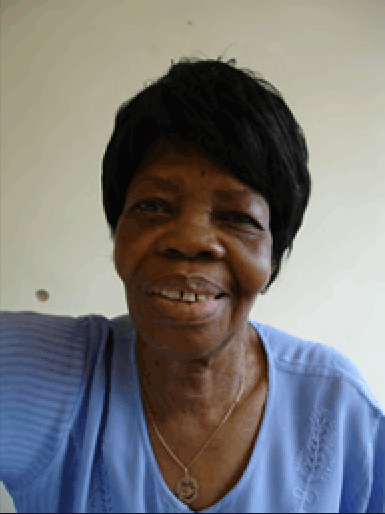 Biographical detail – I was born in Jamaica in the parish of Manchester. I came to England in1961, married in 1963. I have 3, children.. I had different jobs until I went to Cadbury where chocolate ms made. I worked therefor twenty six years.
Biographical detail – I was born in Jamaica in the parish of Manchester. I came to England in1961, married in 1963. I have 3, children.. I had different jobs until I went to Cadbury where chocolate ms made. I worked therefor twenty six years.
My involvement in The Equiano Project – The Project has done a lot for me. It helped me to understand what Equiano has been through so that I can be where I am today. I am glad thatI was able to go to the museum and the library and also read about his journey and what he had to do to save money to buy his freedom so I can be free also they came to the home. They would play some kind of games or tell Anansi stories.
Extract from my audio – At school I did not think much about slaves,, only that my grandparents were taken away from Africa and then taken to the West Indies. I was young so I did not make a big thing out of it. I often wondered why the white children did not go to school with us. When I left Jamaica in 1961…. it was sunny and hot. I was full of excitement. My mum and dad waved me goodbye. It was not my intention that I would spend the rest of my life in England.The first six months I did miss my family and friends. I did cry.
William Wilberforce Brown
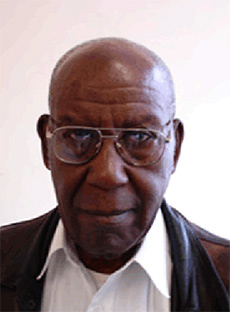 Biographical detail
Biographical detail
My name is William Wilberforce Brown … I was born in Jamaica in the parish of Hanover in 1926 . I came to England in 1960 and stayed in London before moving to Bristol I did missionary work for 17 yea.rs in Africa and then settled in Birmingham. I worked at the Royal Mail for 11 years. I have 4 children, 9 grandchildren and 4 great grandchildren.
Extract from my audio
All through my life I thought of being a missionary.
The story that you want really to hear is about going to
a village. I went to a village and the lady, She took me to the village said … what was happening there nobody who go in that, village don’t come back. So we went there I drove my car. There were about eight houses in the village… So anyway, I saw the Chief and after … he said I could come back at any time. They had a death… and they bury him in the , village. Now when I go, I park my car just beside the compound hut and one day this fella drove his car and park it where I park my car and he say, “Get the car off, that’s my grandfather burial ground. So I say, “So why you never tell me not to park there if it’s your grandfather?” And he say “No, you a God man When you a God man you can park anywhere.”
Headley Taylor
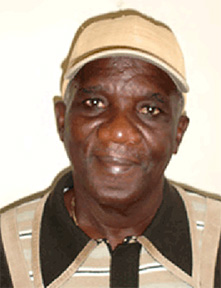 Biographical detail
Biographical detail
I was born in Jamaica in the parish of Clarendon in 1935. I cam to England in 1959, got married in 1963 to Gloria.
My involvement in The Equiano Project
I learn to communicate with people more. I am glad to be a part of the subject and got on well with every one who took aort in it. I also use the computer to do reasearch.
Extract from my audio
My name is Headly and my story is called, Journey to England 1959. Leaving Jamaica on the 18th August around 3pm ariving in England on the 19th around 7pm. It was a memorable journey stopping off in Newfoundland for re-fueling. It was a small airport so when the plane landed we had to walk a little distance to get tothe airport building. I remember tere was a window at the back of the plane and I stood there during the days looking over the ocean. When I landed at Heathrow airport my cousin was supposed to meet me there but never turned up so I had to find my way to Birmingham.
That was my experience.
Esmena Patrick
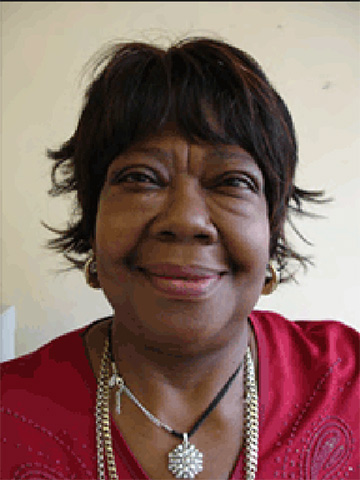 Biographical detail
Biographical detail
My name is Esmena Patrick. I was born in Jamaica in the parish of St Catherine in 1937. I came to Birmingham in 1960. I work at a hospital caring for elderly• people. I was so surprised to see so many old people all in the same place because in Jamaica children care for their parents at home.
My involvement in The Equiano Project
I learnt so much about Equiano and slavery. It helped me to me to respect life more. I am glad that I am able to go to my computer classes, this helps me improve my education. Equiano also learnt to read and write and wrote his story and that’s how we know about him.
Extract from my audio
There once was a little girl named Esme. She lived in Jamaica in a small village. When her mother died she was very small. Her father loved her very much but he could not plait her hair for her to go to school … So one day a lady named Aunty. Mary said to Esme that she would plait her hair but she will have to carry a bucket of water to her every morning. Esme was a very happy little girl because now she looked pretty like all the other girls, I know this story was true because the little girl was me
Eunice Campbell
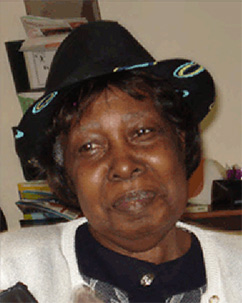 Biographical detail
Biographical detail
My name is Eunice Campbell I am 72 years old. I was born in Jamaica in the parish of St. Andrew. I came to England in 1960. My first job was working at Dudley Road Hospital.
My involvement in The Equiano Project
I was very impressed with how Equiano was able to buy himself out of slavery. This helps others to fight for their freedom. Equiano came to Birmingha. When he saw the snow he thought it was salt. I am glad to be part of this project. I learned a lot more about the history of the slave trade.
Extract from my audio
My first job was at the City Hospital … working as a nursing aid and it was very achieving as I loved to work with elderly people…. But they were very selfish. Oh they were rough to coloured… “I don’t want no coloured to touch me!”… We were really, really treated bad. I think that was slavery at that time. We didn’t have the chain on our hands and our feet but it was slavery because everything was … “Im going to tell the Matron about you!” … but thank God we’re getting over it Its getting a bit better but there is room for improvement.
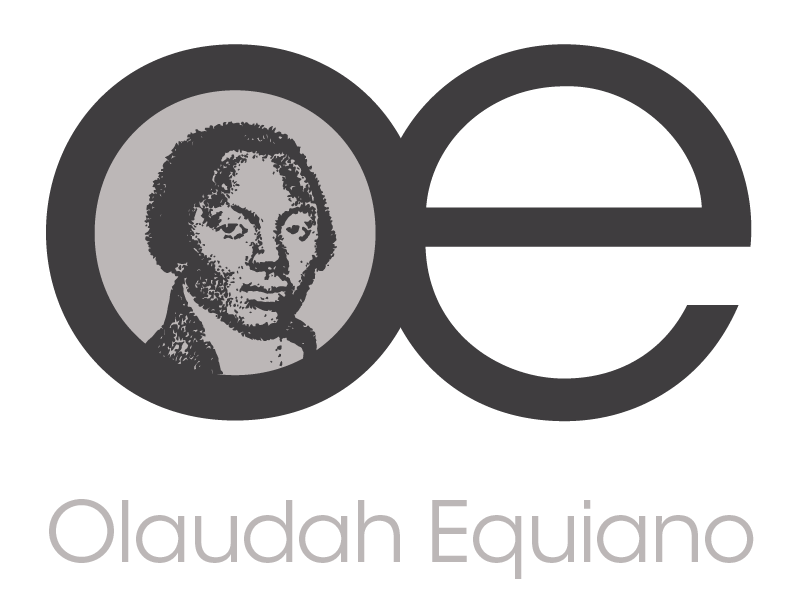
© Equiano 2023


